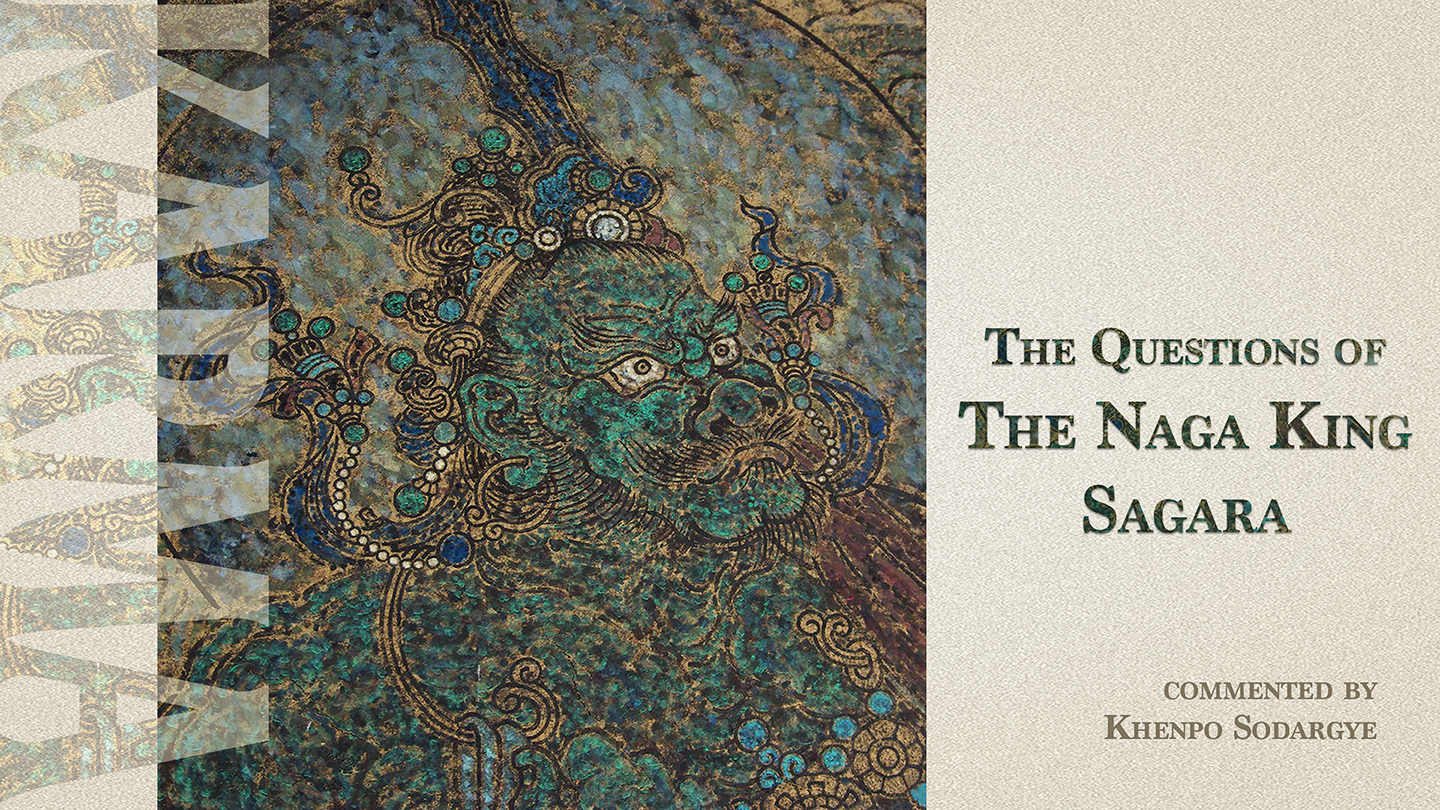The ten virtues are the codes of conduct for human beings laid out by Buddha Shakyamuni more than 2,500 years ago, which can be integrated with modern laws and ethics without any incongruity. Regardless of how history and time have elapsed, they remain universally fresh and applicable.
The Questions of the Naga King Sagara
The Questions of the Naga King Sagara is an exceptional sutra that encompasses the basic and inclusive codes of conduct for human beings. By delineating the ten virtues and their respective merits, as well as the ten non-virtues and their respective defects, this sutra serves as a guideline on behavior that is applicable and beneficial for both Buddhists and non-Buddhists.
From a worldly perspective, most cultures throughout the world would agree that the ten virtues constitute the fundamental principles of ethical behavior and are imperative for all of mankind. Whether one is a member of the laity or a monastic, an Easterner or a Westerner, privileged or underprivileged, the ten virtues apply to everyone, regardless of any differences.
Meritorious effects are expected if one engages in the ten virtues, whereas harmful consequences are foreseeable when one commits the ten non-virtues. If a man cannot uphold the ten virtues, he lacks basic human decency and will find it difficult to survive in this world because misfortune and difficulties in this and future lifetimes are certain to be expected.
Especially as a Dharma practitioner, it is of fundamental importance to have a thorough understanding of the ten virtues and the ten non-virtues. Without observing the ten virtues and refraining from the ten non-virtues, it will be difficult to make progress in one’s Dharma practice, let alone to attain Buddhahood and benefit sentient beings.
Therefore, this sutra is a classic text that deserves everyone’s attention. I truly believe it is crucial for everyone to understand the ten virtues and the karmic law that explains the causality of actions and effects. Such knowledge is beneficial for everyone, including those who’ve never taken refuge in the Three Jewels.

Lord of nagas, the paths of ten virtues are the basis for all the wondrous merits in the human and deva realms. They are the basis for the conditioned and the unconditioned fruition of wisdom. They are the basis for the awakening of shravakas, pratyekabuddhas, and bodhisattvas. They are the basis for the unexcelled and perfect enlightenment of buddhas. They are also the basis for all the qualities of buddhas.


As we have the opportunity to study the karmic principle, we’d better take it seriously and apply it in our life. If one believes in cause and effect, understanding and observing the ten virtues is the very basic training. Otherwise, one will easily offend them and thus have to bear inevitable suffering in future lives.

When a certain illness is uncurable or idiopathic, we should recognize it as our karmic debt. Unless it is paid off, we’ll continue to suffer. Whenever I’m sick, I’d have a strong feeling of indebtedness to sentient beings. Hence, I’d sincerely confess all killings that I might have done in my past lives.

Resources
We’ve seen rapid and continual changes in legal systems throughout different periods of human history, while the disciplines set in place by the Buddha have remained effective from their onset to the present, regardless of how dramatic the changes that society had been undertaking. Reflecting upon this, one can’t help but be curious about the wonderous mystery hidden inside.
